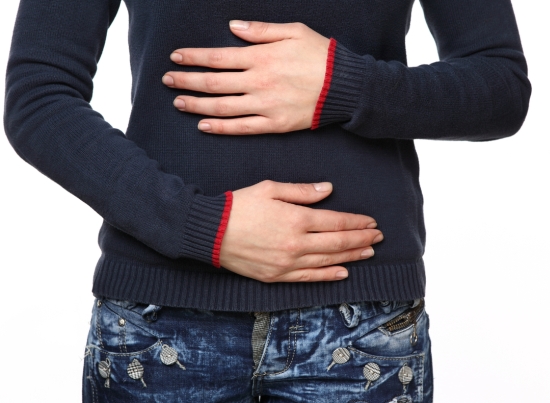The uterine fibroid symptoms that women experience can vary greatly and may differ due to location and the size of the fibroids that a woman has. By themselves fibroids may not be dangerous, since they are nearly always benign and not cancerous. It is usually the bothersome symptoms that lead women to get treatment for fibroids.
Commonly experienced uterine fibroid symptoms
Women who do experience symptoms of uterine fibroids, typically have very heavy menstrual bleeding, mid cycle bleeding or spotting, very painful periods and so on.
 There could be bloating and abdominal discomfort due to the presence of the fibroids in the uterus. Bowel movements may be painful and frequent urination as well as urinary retention (inability to empty the bladder fully) may also be among the symptoms. In some cases sex could be painful.
There could be bloating and abdominal discomfort due to the presence of the fibroids in the uterus. Bowel movements may be painful and frequent urination as well as urinary retention (inability to empty the bladder fully) may also be among the symptoms. In some cases sex could be painful.
Even more problematic could be the uterine fibroid symptoms experienced in pregnancy. In some cases pregnancy itself may be difficult due to the size and location of the fibroids.
This could be due to the fact that the implantation of the embryo in the lining of the uterus may not be possible due to the fibroids.
At times conception does occur even with the presence of fibroids but success of the pregnancy is hindered due to the fibroids. Possible miscarriage, early labor and premature delivery, pregnancy bleeding and interference with position of the baby in the womb are other complications that could occur in a woman with fibroids.
What do the uterine fibroid symptoms depend upon?
A majority of women with fibroids experience no symptoms of their condition, and many exhibit fairly mild symptoms.
If the fibroids are small, it could be that the woman is quite unaware of their existence and that they may cause absolutely no symptoms. However if the fibroids are large enough they may cause symptoms such as bleeding, pain, mid-cycle spotting, painful periods and so on.
Similarly if the fibroids are located in certain areas they may cause other symptoms such as painful sexual intercourse, prevention of pregnancy due to interference in the process of implantation, pregnancy complications and so on.
Also the location of the fibroids will decide whether a woman experiences symptoms such as pressure on the rectum (painful bowel movement) or problems with urination.
When is it necessary to get treatment for uterine fibroid symptoms?
When symptoms are absent of mild, no treatment is required. Fibroids very rarely turn cancerous, and only 1 in a 1000 cases of fibroids will show any malignancy.
So if the symptoms that a woman experiences are very severe and they interfere with the quality of life, or if they are preventing conception or successful carrying to term of a pregnancy, treatment must be sought.
Also if the fibroids appear to be growing very fast, this could indicate chances of malignancy and here as well uterine fibroid symptoms should be treated expeditiously. In some cases the fibroids may metastasize; that’s to say that they may spread or migrate. This could also be a cause for concern and treatment may be required.





